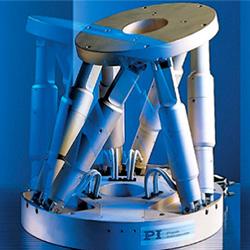Preparation - Is a Key. How to Address Challenges of IoT Development at Discovery
Despite the redoubled efforts made to fix issues, more than half of the IoT projects are considered unsuccessful by their initiators. For some reason, companies often prefer to ignore this fact.
Three Ways to Improve Collaboration Among Manufacturing Sites
Typically, collaboration between manufacturing sites is ad-hoc and disorganized at best. Spreadsheets, email chains and one-off instant messages make it taxing to locate information quickly.
Best Project Management Practices for Hybrid R&D Teams in Manufacturing
Regardless of the industry, all manufacturing teams have one thing in common-mature software and equipment may support their core manufacturing processes, however, there is no such support for ancillary processes.
Records 1 to 3 of 3
Featured Product

PI USA - Steering light beams: Pros and cons of different methods
Optical system designers utilize tried-and-true technology like galvo scanners, voice coil-driven steering mirrors, kinematic mirror mounts, and gimbal mounts. This article describes strengths and limitations of these technologies and looks at other light steering methods.



